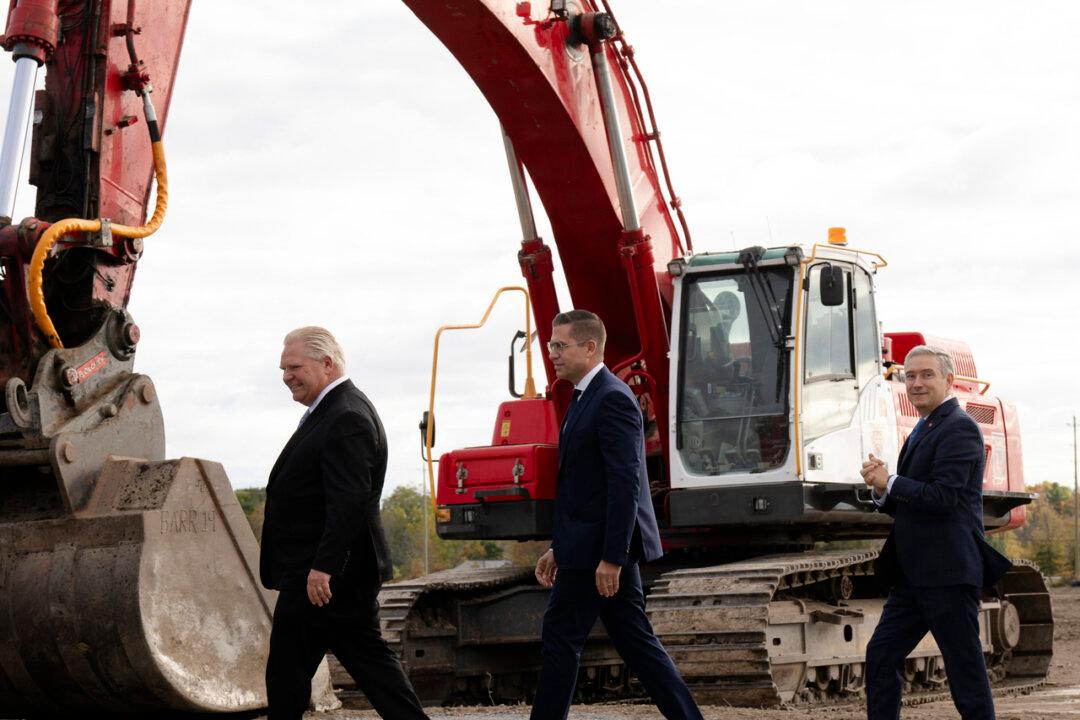Less than a year after breaking ground, the company slated to build a major rechargeable battery manufacturing plant in Ontario says it is halting the project due to declining demand for electric vehicles (EVs).
Umicore Rechargeable Battery Materials Canada Inc. is taking “immediate action” to address a “recent significant slowdown in short- and medium-term EV growth projections affecting its activities,” the company said in a July 26 press release. This includes delaying the construction of its battery materials plant in Loyalist Township, about 25 kilometres northwest of Kingston, Ont.





